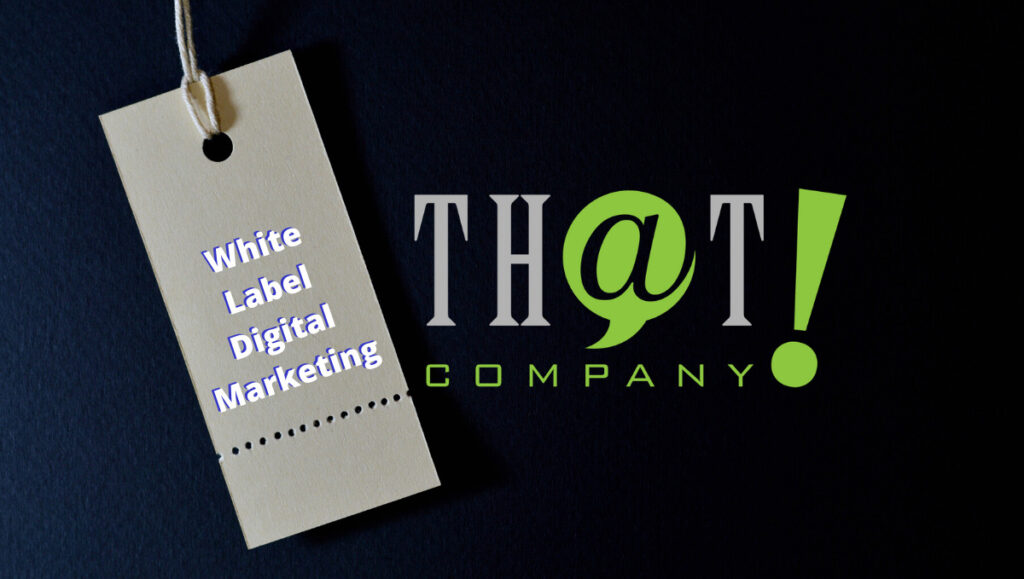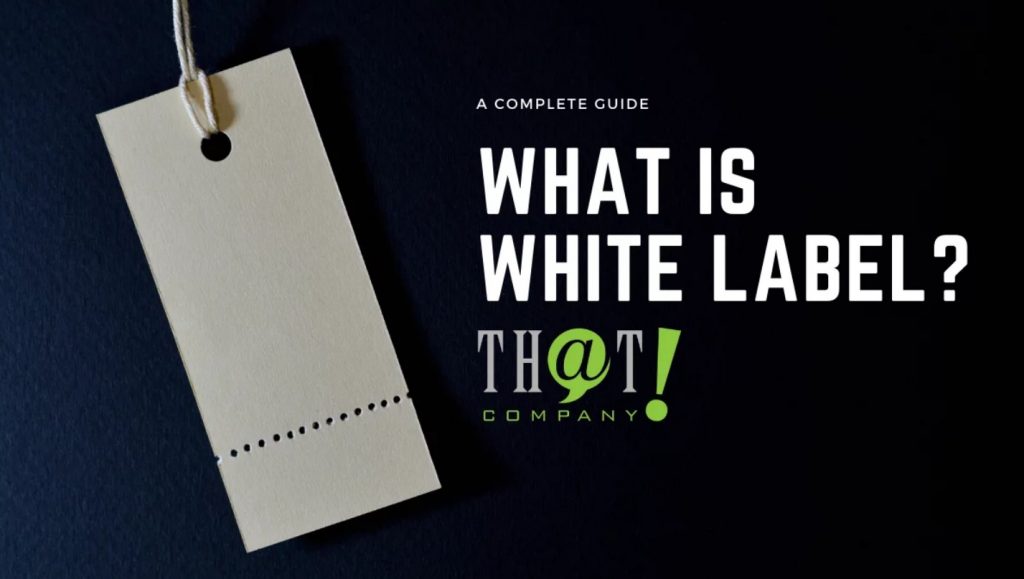
What is White Label and/or Private Label?
White label refers to the practice where one company purchases a product from another company and then rebrands it as its own. Typically, the company selling the final product to the consumer has no direct involvement in manufacturing.
White label products are essentially generic items produced in large quantities and are subsequently customized to a certain extent, such as by adding a logo or brand name. These products can be ordered in bulk, dropshipped, or printed on demand to cater to various brands. The primary goal of white labeling is to make the product appear as if the rebranding company made it. The advantage of white labeling includes avoiding significant upfront costs of product development and marketing, allowing businesses to launch their offerings more quickly and efficiently. This makes white labeling an attractive option for small businesses looking to enter the market with reduced overhead. When you choose a white-label solution, selecting a trustworthy supplier is crucial, as it reduces the financial risks associated with starting a new business.
On the other hand, the term private label is often used to describe products exclusively manufactured for a retailer and sold under the retailer’s brand. These products are usually unavailable under the private label manufacturer’s original branding.
Now, to some, the meaning of white label might be different. To fully understand the contrast between white label and private label, consider reading an article titled “White Label vs Private Label.” It dives deeper into these concepts and comprehensively explains their meanings, definition, and usage.
White Labeling Video Explainer
Examples of White Label Branding.
-
Software:
Many software companies offer white labeling solutions that can be customized and rebranded by other businesses. For example, email marketing platforms like Mailchimp and Constant Contact offer white label software options, allowing agencies to provide email marketing services under their own company name. Learn more about white label software -
Digital Marketing:
It is exceptionally common for advertising agencies and digital marketing firms to outsource some or even most of their services. Many specialize in one specific facet and use a white label digital marketing agency, like That! Company to infill the rest. -
Grocery and Retail:
Supermarkets and big box retailers often sell white label products, which are manufactured by third-party suppliers and sold under the supermarket’s own branding. These consumer products range from food items like canned goods and snacks to household products like cleaning supplies. -
Electronics Industry:
Electronics companies are regularly white labeling their products for other brands. For instance, a manufacturer might produce smartphones or tablets for companies that rebrand and sell the devices as their own. -
Web Hosting:
Many web hosting companies offer white labeled hosting services. This allows resellers to sell web hosting packages under their own brand names while the main web hosting company provides the actual hosting infrastructure and support. -
Payment Processing:
Payment gateway providers often offer white labeled payment processing solutions. This enables businesses to integrate the payment gateway into their systems and provide seamless payment processing services to their customers under their own branding. -
Beauty and Personal Care:
White labeling is prevalent in the beauty and personal care industry. Many cosmetic brands’ private label brands outsource manufacturing of their products to third-party manufacturers, who produce the white label products and package them under the private label brands’ name. -
Financial Services:
Financial institutions engage in white labeling financial products and services to other companies. This includes white labeling branded credit cards, prepaid cards, and even banking solutions, where the branding and customer experience are customized to match the partner company. -
Coffee Industry:
An example some coffee bean companies engage in white labeling by supplying coffee beans to other brands for resale. This allows smaller coffee brands to offer high-quality beans under their own branding without managing the production process.
How Does White Label Digital Marketing Work?
White label digital marketing operates differently than white label branding of a physical product, such as those seen in many retailers like Walmart. In digital marketing, white labeling is a practice where your business procures white label services from a white label company and then offers them to your clients under your brand name.
It’s a process quite distinct from customers selecting a product, adding it to their shopping basket, and proceeding to checkout. Instead, in this context, the white labeled services are invisible to the end customer. The services appear as your own, adding value to your brand while eliminating the need to develop the services internally.
How Does White Label/Private Label Digital Marketing Work With That! Company In Particular?
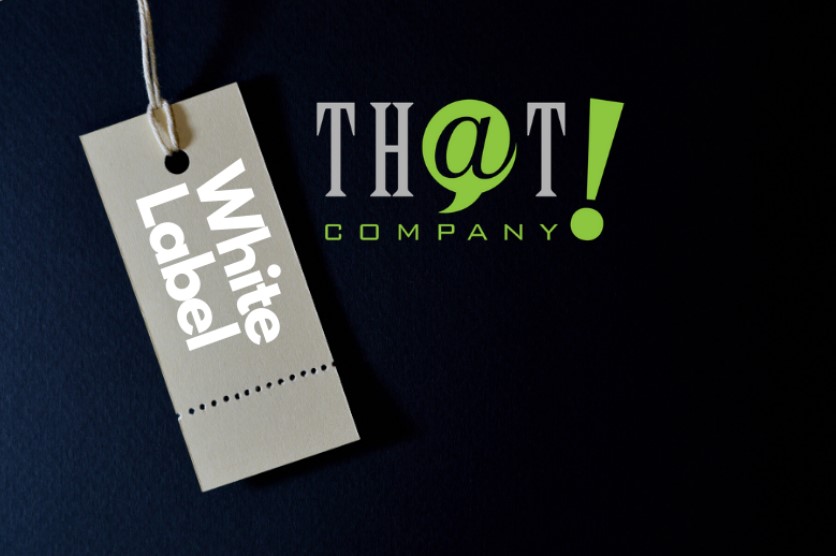
That! Company can provide various services to your client(s). Our white label digital marketing services include:
Search Engine Optimization (White Label SEO)
Pay-per-click Management (White Label PPC/SEM)
Social Media Marketing (White Lable Social Media Management SMM)
Website Design and Development
Reputation Management
White Label Software Evaluation and Selection
White Labeled Products Evaluation and Selection (Coming Soon)
How Working with That! Company is Different
Working with the leading white label company, That! Company presents a unique experience compared to other private labeled brands. While many private label service providers focus solely on back-end work, leaving you to serve as an intermediary between them and the customer (which could impact your profits – it’s worth reading about our white label pricing structure), That! Company operates differently.
That! Company positions itself, and indeed prefers, to act as a front-facing white label digital marketing provider. This means that we actively engage with clients on your behalf under your brand name. Out of our white label partners, approximately 80% utilize us in this front-facing role. In comparison, the remaining 20% prefer us to focus purely on back-end tasks, providing them with deliverables to present to their clients.
We firmly believe that the front-facing model enhances the customer experience significantly. This approach lets your clients directly interact with the professionals handling their marketing campaigns, thus promoting transparency, immediate feedback, and more personalized service. By adopting this method, we aim to provide high-quality, efficient service while strengthening the perceived value of your brand.
Sales Support
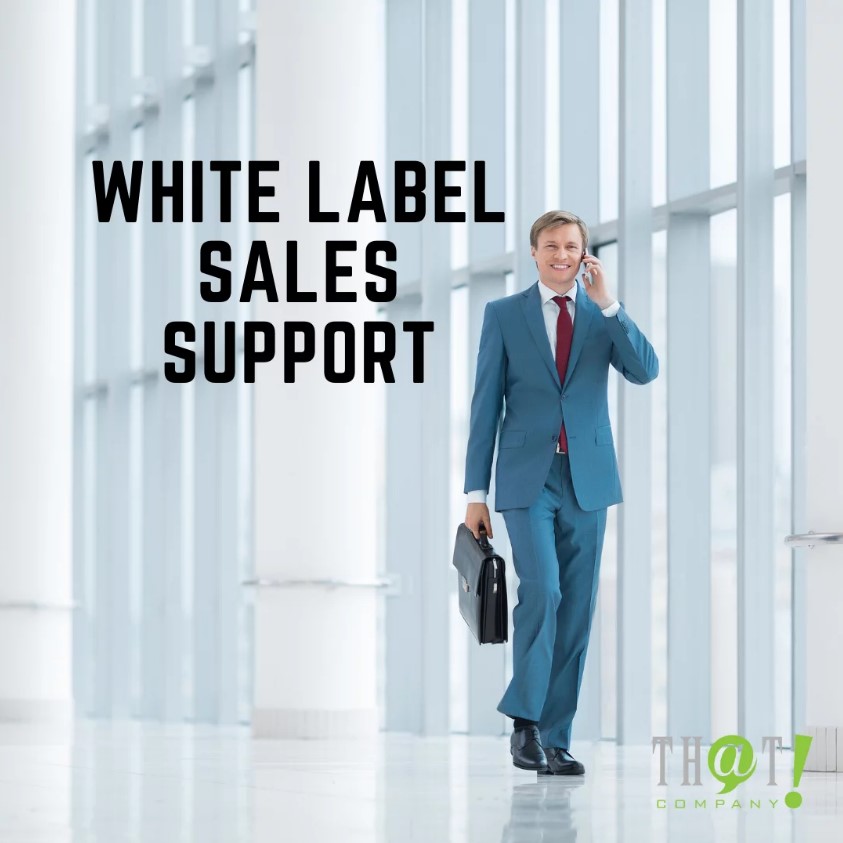
When you work with That! Company, we start with you in the sales process. When you have a target customers interested in the various digital marketing services we provide on your behalf, you’ll reach out to your dedicated Digital Marketing Strategist. Our strategist will put together research on the prospect and their top two or three competitors, then have a preliminary conversation with the prospect about their goals and objectives and how we can help them. This entire experience happens under your brand name and you can start selling the new services right away! They’ll never know that they’re talking with a That! Company representative. We also provide free sales collateral for you to use. Before meeting with the prospect, we will provide you with a proposal and contract templates to close the deal. We also offer support with your next meetings to help you close the deal. Once they sign off on the contract to move forward, you can be as involved or uninvolved as you wish. Our goal is to lift our partners to fulfill more of the CEO role while we take care of the day-to-day management of clients.
What are the Advantages of Front Facing vs. Back-End White Label Solutions?
Fewer Layers
Easily Scalable
Better Customer Life Time Value (LTV)
You Get to Focus on What You’re Good At
Have you ever been given the runaround? You hear that the person has to ask another person, then that person has to ask another person to get your answer. You wait a few days for the answer to discover they still don’t know. This isn’t good for the customer experience. When providing a front-facing service, if the customer asks a technical question related to the marketing campaigns we’re managing, we’re already on the phone to answer for them right now! Less waiting for our customers means better communication and, ultimately, better results as work is accomplished more quickly.
Understanding White Label Products
White label products are generic items or services produced by one company and then rebranded and sold by another company as their own. This arrangement allows businesses to expand their product offerings without the need to invest in the production process. By leveraging white label products, companies can quickly enter new markets and offer a diverse range of products under their own brand name.
These products are often customized with unique packaging, logos, and features to align with the company’s brand identity. Retailers can source white label products by partnering directly with a manufacturer or by using print-on-demand services to create their own branded items. This flexibility makes white labeling an attractive option for businesses looking to enhance their product lines efficiently.
It’s a process quite distinct from customers selecting a product, adding it to their shopping basket, and proceeding to checkout. Instead, in this context, the white labeled services are invisible to the end customer. The services appear as your own, adding value to your brand while eliminating the need to develop the services internally.
What are the Benefits of White Labeling and Private Labeling?
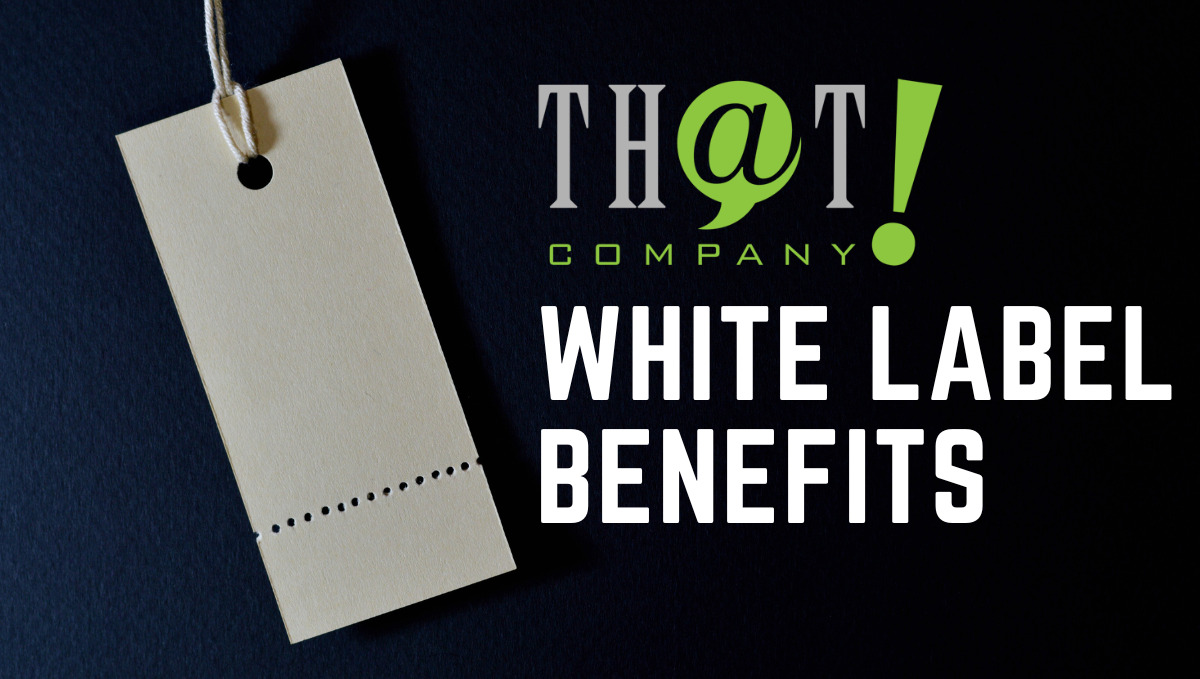
There are many benefits of a white label solution and private label branding. Some of the benefits of white labeling are:
Selling white label products offers significant advantages such as revenue expansion, quicker market entry, and diversification of revenue streams. By adopting strategies focused on the white label business, companies can leverage rebranding and advertising to effectively reach new markets without the need for extensive product development or licensing. This approach not only streamlines the process of introducing new products but also allows businesses to focus on their core competencies while expanding their product offerings.
The white label business model further enhances these benefits by enabling companies to avoid unnecessary licensing, reinvest funds into core business areas, and utilize their experience to gain a competitive edge. This model is particularly advantageous for businesses looking to quickly adapt to market changes and consumer demands without the overhead of developing new technologies or products from scratch. White label manufacturers often have established quality control processes and teams of experts dedicated to ensuring products meet specific standards, leading to better quality control. Additionally, lower minimum order quantities make it a more accessible option for startups and new businesses that may not require large amounts of inventory.
White label companies play a crucial role in this ecosystem by providing generic products or services that multiple companies can brand as their own. This enables companies to offer branded solutions without the long development or production processes typically associated with launching a new product. Working with white label providers brings additional advantages, including benefits for brands, providers, and end customers through increased brand exposure, reduced costs, and reduced risk.
A white label product exemplifies the essence of this strategy by allowing companies to rebrand and sell products under another brand’s name, which can lead to increased brand exposure and reduced costs. This approach not only facilitates a quicker time to market but also reduces the risk associated with new product development, making it an attractive option for businesses aiming to expand their product lines efficiently. Compared to developing your own product, white label products provide greater flexibility in customizing aspects like packaging and branding, allowing businesses to tailor products to their target market while maintaining some level of control over presentation.
Benefits of Partnering with a White Label Manufacturer
Partnering with a white label manufacturer offers numerous benefits for businesses. One of the primary advantages is the ability to expand product offerings without significant investment in research and development. White label manufacturers provide high-quality products that have already been tested in the market, reducing the risk associated with launching new products.
Additionally, white label products can be customized to fit a company’s brand identity, allowing for greater control over branding and marketing efforts. This customization ensures that the products resonate with the target audience and maintain brand consistency. Furthermore, partnering with a white label manufacturer can lead to better pricing control, enabling businesses to set competitive prices and increase profit margins.
The White Label Process
The white label process typically involves several key steps:
Research and Selection of a White Label Manufacturer: Businesses start by identifying and evaluating potential white label manufacturers. This involves assessing the manufacturer’s product quality, reputation, and ability to meet specific requirements.
Customization of the Product: Once a manufacturer is selected, the next step is to customize the product to align with the company’s brand identity. This may include adding logos, unique packaging, and specific features.
Production and Packaging: The manufacturer then produces and packages the customized product according to the agreed specifications.
Shipping and Delivery: The finished products are shipped and delivered to the company, ready for distribution.
Sales and Marketing: Finally, the company markets and sells the product under its own brand name, leveraging its existing sales channels and marketing strategies.
Choosing a White Label Supplier
Selecting the right white label supplier is crucial for the success of your white label products. Here are some key factors to consider:
Product Quality: Ensure the supplier has a proven track record of producing high-quality products that meet your specifications.
Reputation: Research the supplier’s reputation in the industry. Look for reviews, testimonials, and case studies to gauge their reliability and performance.
Pricing: Compare pricing structures to ensure you get the best value for your investment. Consider the cost of customization and potential profit margins.
Customer Service: Evaluate the supplier’s customer service and support. A responsive and helpful supplier can make the process smoother and more efficient.
Certifications and Compliance: Verify that the supplier has the necessary certifications and complies with relevant regulations to ensure product safety and quality.
By White Labeling, You Avoid the Following Costs:
Building a brand and company-
Building a salesforce-
Building a customer service department-
Building an R& D department-
Developing and launching new products-
Design and development of packaging-
Avoid the risk of developing a new brand image and/or reputation-
By White Labeling, You Get Instant Access to:
Existing customers and distributors through your own brand names-
Existing product manufacturing and supply chain-
Marketing and promotion resources through your own branded products-
Advertising media/ media through your private label branding-
Existing salesforce-
To existing customer service
Preexisting logos, designs, and other brand identity elements through your private labeled brand
White Label Products are Another Way to Expand and Grow all Kinds of Businesses
A white-labeled product or service is a product or service produced by one company (the producer) that other companies( the marketers) rebrand to make it appear as if they had made it. White-label products are often produced via mass production. The term “white labeled” comes from the white color of the product’s label or packaging, which is left blank for the marketer to fill in with its own brand. The main advantage of white products is that they allow companies to enter new markets quickly and cheaply without developing their products from scratch. White-labeled products are also advantageous because they can be quickly and easily customized to meet the marketer’s needs.
Popular Industries for White Label Products
White label products are prevalent across various industries, offering numerous opportunities for businesses to expand their product lines. Some popular industries include:
Electronics: White label electronics, such as smartphones, laptops, and tablets, are widely available. Companies can rebrand these products to offer cutting-edge technology under their own brand.
Cosmetics: Many cosmetics brands use white label products, including skincare, makeup, and hair care items. This allows them to offer a diverse range of beauty products without investing in manufacturing.
Food and Beverage: White label food and beverage products, such as snacks, beverages, and packaged foods, are common. Retailers can offer these products under their own brand, catering to specific customer preferences.
Health and Wellness: The health and wellness industry benefits from white label products like dietary supplements, vitamins, and herbal remedies. These products can be customized to meet the needs of health-conscious consumers.
Fashion: White label fashion products, including clothing, accessories, and footwear, are widely available. Brands can quickly expand their fashion lines by rebranding these products to match their style and identity.
These industries provide a wealth of opportunities for businesses to partner with white label manufacturers and offer high-quality products to their customers, enhancing their brand presence and market reach.
There are some disadvantages to white-labeled products, as well.
Because white-labeled products are mass-produced, they can be less innovative than products developed specifically for a company. In addition, white-labeled products can be more expensive than comparable branded products because the marketer has to pay for rebranding the product. Private labeled products are similar to white-label products in that they are produced by white label manufacturer and then rebranded by another company. The main difference between private label and white label products is that private label products are not necessarily mass-produced; they may be produced in smaller quantities specifically for a particular company. Private label products may also be more expensive than white label products because the company that makes them may charge a premium for producing smaller product quantities.
So what are you waiting for? Want to learn more about our Agency focused digital marketing solutions? Fill out a form, and we’ll start a conversation today!




